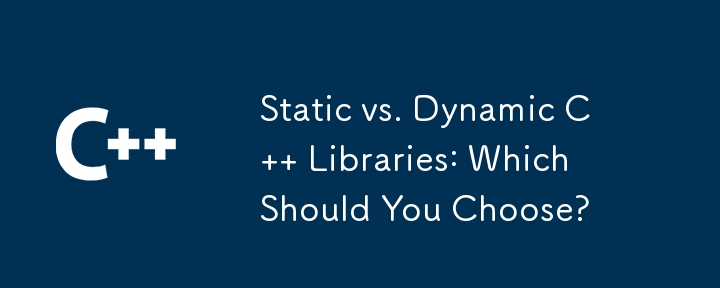

In C class library development, the choice between dynamic (.dll, .so) and static (.lib, .a) libraries plays a significant role. Understanding their distinctions is crucial for tailor-made library implementation.
Static libraries are integrated directly into the executable binary. They necessitate larger file sizes for executables, and their inclusion guarantees the execution of the specific code encompassed within the library.
In contrast, dynamic libraries are separate entities loaded at runtime. This separation allows for versioning, enabling updates to the library without affecting existing executables as long as binary compatibility is preserved. Dynamic libraries are commonly shared among multiple components, minimizing memory consumption.
The appropriate library selection depends on the project's requirements:
Dynamic libraries have historically been considered superior due to their flexibility and memory optimization. However, with advancements in operating systems, DLL issues have become less prevalent. The specific project requirements and preferences will ultimately dictate the choice between dynamic and static libraries.
The above is the detailed content of Static vs. Dynamic C Libraries: Which Should You Choose?. For more information, please follow other related articles on the PHP Chinese website!




